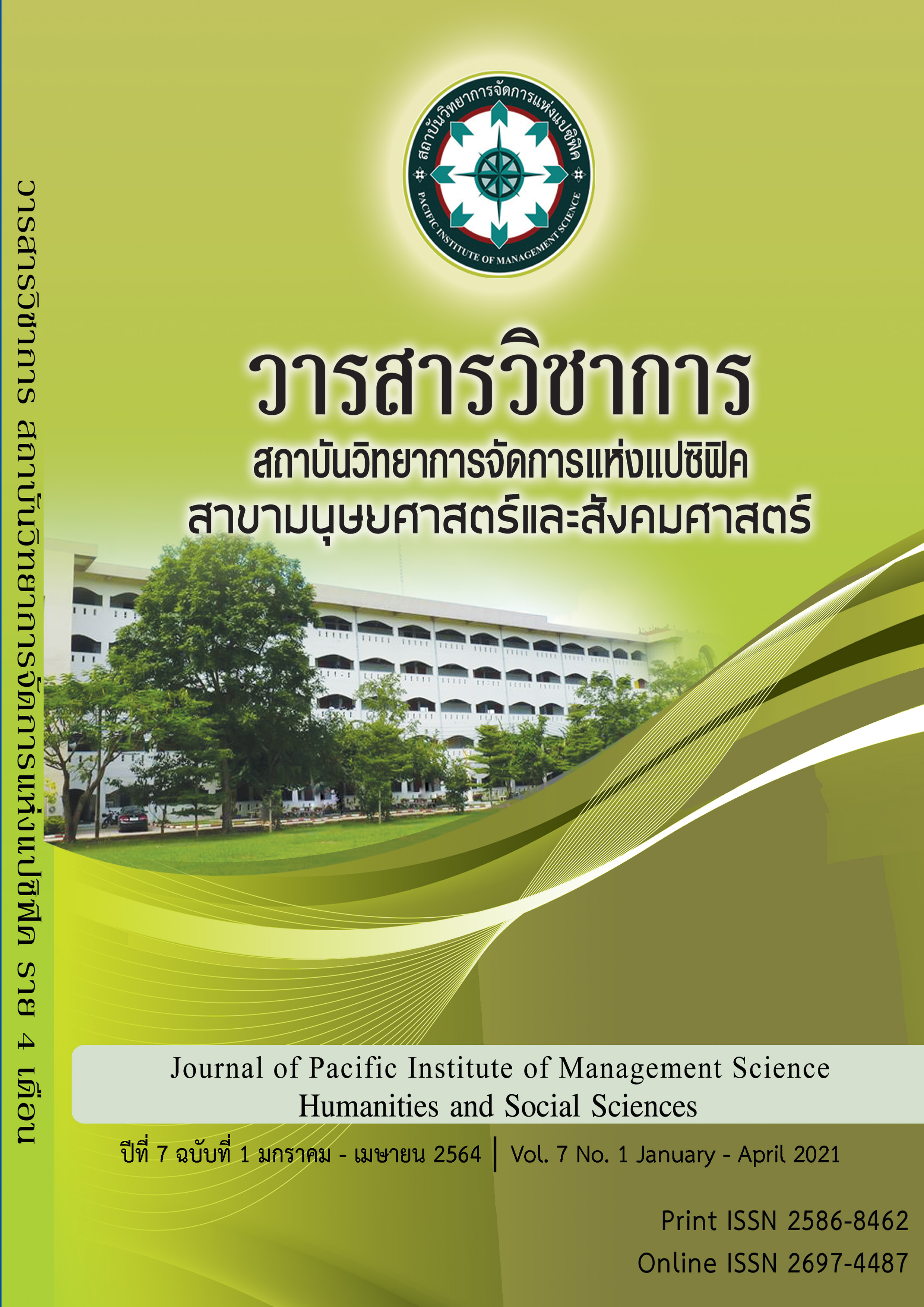Guidelines for the development of the educational quality assurance system to focus on academic excellence of educational institutions under the Nonthaburi Primary Educational Service Area Office 1 and 2
Keywords:
Development, the educational quality assurance system, Nonthaburi Primary Educational Service Area Office 1 and 2Abstract
This objective of this research were (1) to study perception Cognition acceptance attitude needs and expectations cooperation of stakeholders with educational institutions in Nonthaburi Primary Educational Service Area Office 1 and 2 on educational quality assurance of educational institutions in Nonthaburi Primary Educational Service Area Office 1 and 2 (2) The implementation of quality assurance of educational institutions, including current conditions, problems and obstacles in educational quality assurance of educational institutions in the Nonthaburi Primary Educational Service Area Office, Area 1 and District 2 (3) Guidelines for the development of the educational system of educational institutions in Nonthaburi Primary Educational Service Area Office 1 and 2 (4) To propose strategies for developing an educational quality assurance system for educational institutions in Nonthaburi Primary Educational Service Area Office 1 and 2. Collect data from questionnaires with all stakeholder or who have a stake with the education management of an educational institution 800 people. The researcher was able to collect data from 768 real samples, or 96.00 percent of the total sample. Both directly and indirectly including the Committee of Nonthaburi Provincial Education Office Commission of the Primary Educational Service Area Office and other committees related administrators / Director of Educational Institutions Teachers, Board of Education and parents of students. The analysis used were descriptive statistics such as frequency, percentage, mean and standard deviation.
The results of the research were as follows:
1. Management of educational institutions in terms of leadership, executives praised appreciate fair, equitable and equal teachers' performance in personnel, educational institutions, training to enhance skills in teaching and learning development. And continuously develop the quality assurance system of educational institutions in terms of budget, budget results are reported to the school administration committee regularly. In terms of materials, educational institutions have materials and equipment that are in good condition, ready for use in all aspects in terms of communication, educational institutions have public relations. Information of educational institutions to the community education institution administration committee to receive information of educational institutions about the educational quality assurance of educational institutions regularly on a regular basis.
2. Perception and cognition acceptance attitude needs and expectations cooperation for the development of the educational quality assurance system of educational institutions much of the perception comes from internet / social media having knowledge and understanding in controlling, auditing and evaluating the operation of educational institutions capable of providing quality education. There is an attitude of acknowledging that educational institutions should pay more attention to teaching, organizing activities that instill students happiness with learning. Seeking knowledge, pursuing learning, thinking, thinking as having skills in life. And ready for change as for the needs / expectations should let the education area office, supervisory agency supervise, promote and to assist educational institutions in developing quality assurance systems within educational institutes to be able to operate effectively. Effectively achieve the goals set by the school as for the cooperation in educational establishment development, there was cooperation from the students' parents as well.
References
กรมวิชาการ กระทรวงศึกษาธิการ. (2560). การประเมินคุณภาพภายนอก. กรุงเทพฯ : โรงพิมพ์รักษาดินแดน.
คณะกรรมการการศึกษาแห่งชาติ. (2545). พระราชบัญญัติการศึกษาแห่งชาติ พ.ศ. 2542 ที่แก้ไขเพิ่มเติม (ฉบับที่ 2) พ.ศ. 2545. กรุงเทพมหานคร : สำนักงานคณะกรรมการการศึกษาแห่งชาติ.
จำรูญ เรืองขจร. (2560). คู่มือการพัฒนาระบบการประกันคุณภาพภายในสถานศึกษา ระดับการศึกษาขั้นพื้นฐาน. กรุงเทพมหานคร: สำนักพิมพ์ไทยวัฒนาพานิช.
สำนักงานเขตพื้นที่การศึกษาประถมศึกษานนทบุรี เขต 1 และเขต 2. (2559). การวิจัยปฏิบัติการเพื่อพัฒนาระบบประกันคุณภาพการศึกษาภายในสถานศึกษาในสังกัดสำนักงานการประถมศึกษาจังหวัดนนทบุรี. นนทบุรี.
สำนักงานเขตพื้นที่การศึกษาประถมศึกษานนทบุรี เขต 1 และเขต 2. (2560). ข้อมูลสารสนเทศโรงเรียนในสังกัดสำนักงานเขตพื้นที่การศึกษาประถมศึกษา จังหวัดนนทบุรี เขต 1 และเขต 2. ปีการศึกษา 2560. นนทบุรี.
Daft, R. L. (2008). The Leadership Experience. 4th ed. Mason, O.H.: Thomson/South-Western.
Massoglia, M., & Uggen, C. (2010). Settling Down and Aging Out: Toward an integrationist Theory of Desistance and the Transits on to Adulthood. American Journal of sociology,116(2),543-582.
Roblyer, M. D., Porter, M., Bielefeldt, T., & Donaldson, M. B. (2009). Teaching online made me a better teacher: Studying the impact of virtual course experiences on teachers’ face-to-face practice. Journal of Computing in Teacher Education, 25(4), 121–126.
Truss, K., Soane, E., & Petrov, G. (2011). Employee engagement, Organisational performance and individual well-being: Exploring the evidence, developing the theory. International Journal of Human Resource Management, 22(1),232-233,
Downloads
Published
Issue
Section
License
บทความที่ได้รับการตีพิมพ์เป็นลิขสิทธิ์ของ สถาบันวิทยาการจัดการแห่งแปซิฟิค
ข้อความที่ปรากฏในบทความแต่ละเรื่องในวารสารวิชาการเล่มนี้เป็นความคิดเห็นส่วนตัวของผู้เขียนแต่ละท่านไม่เกี่ยวข้องกับสถาบันวิทยาการจัดการแห่งแปซิฟิค และคณาจารย์ท่านอื่นๆในสถาบันฯ แต่อย่างใด ความรับผิดชอบองค์ประกอบทั้งหมดของบทความแต่ละเรื่องเป็นของผู้เขียนแต่ละท่าน หากมีความผิดพลาดใดๆ ผู้เขียนแต่ละท่านจะรับผิดชอบบทความของตนเองแต่ผู้เดียว







